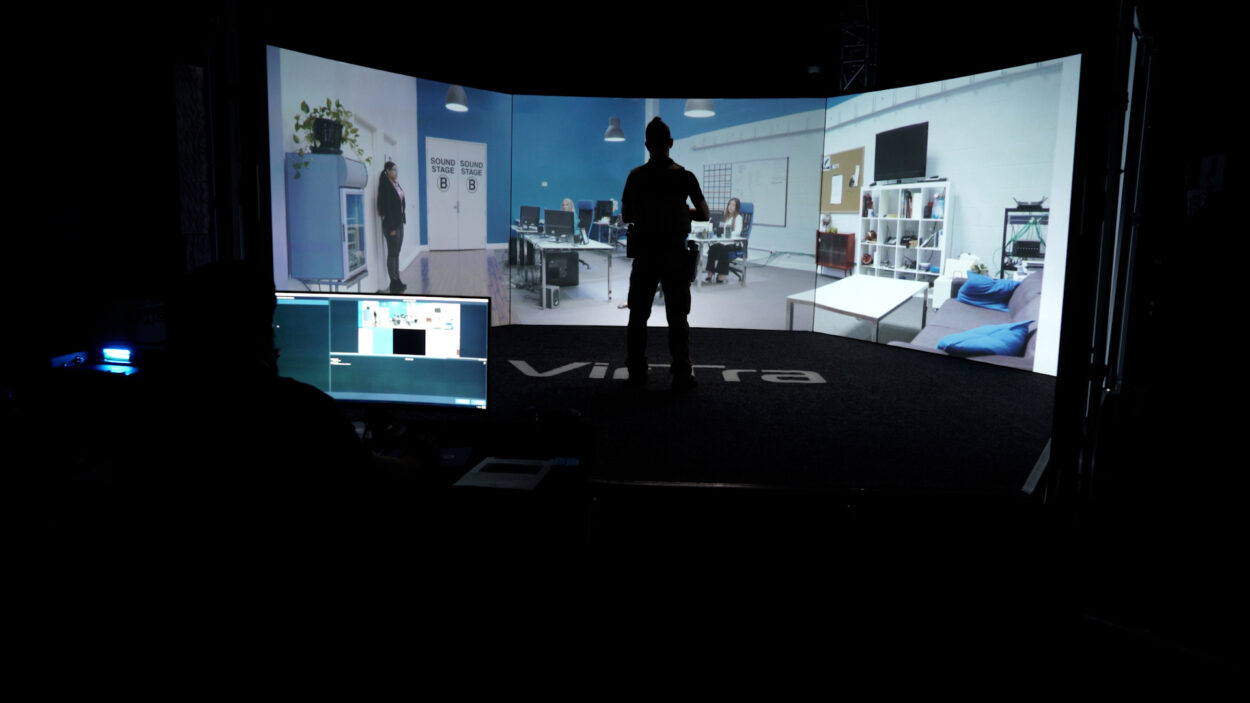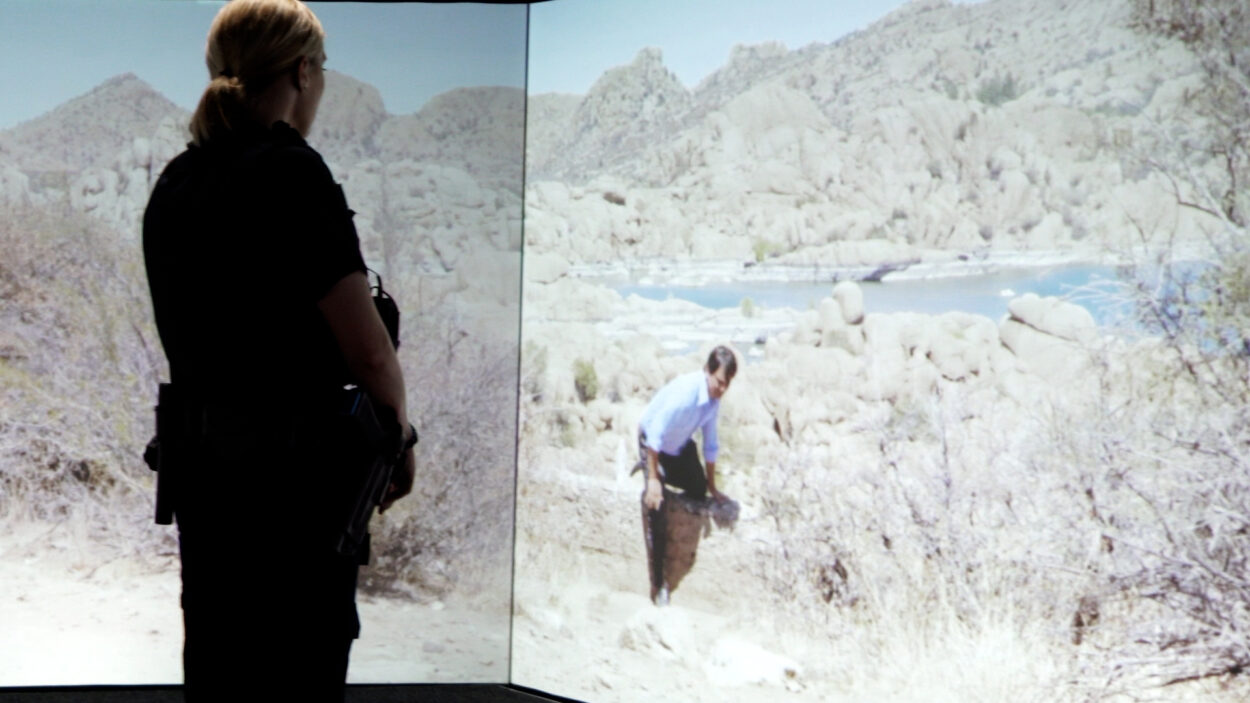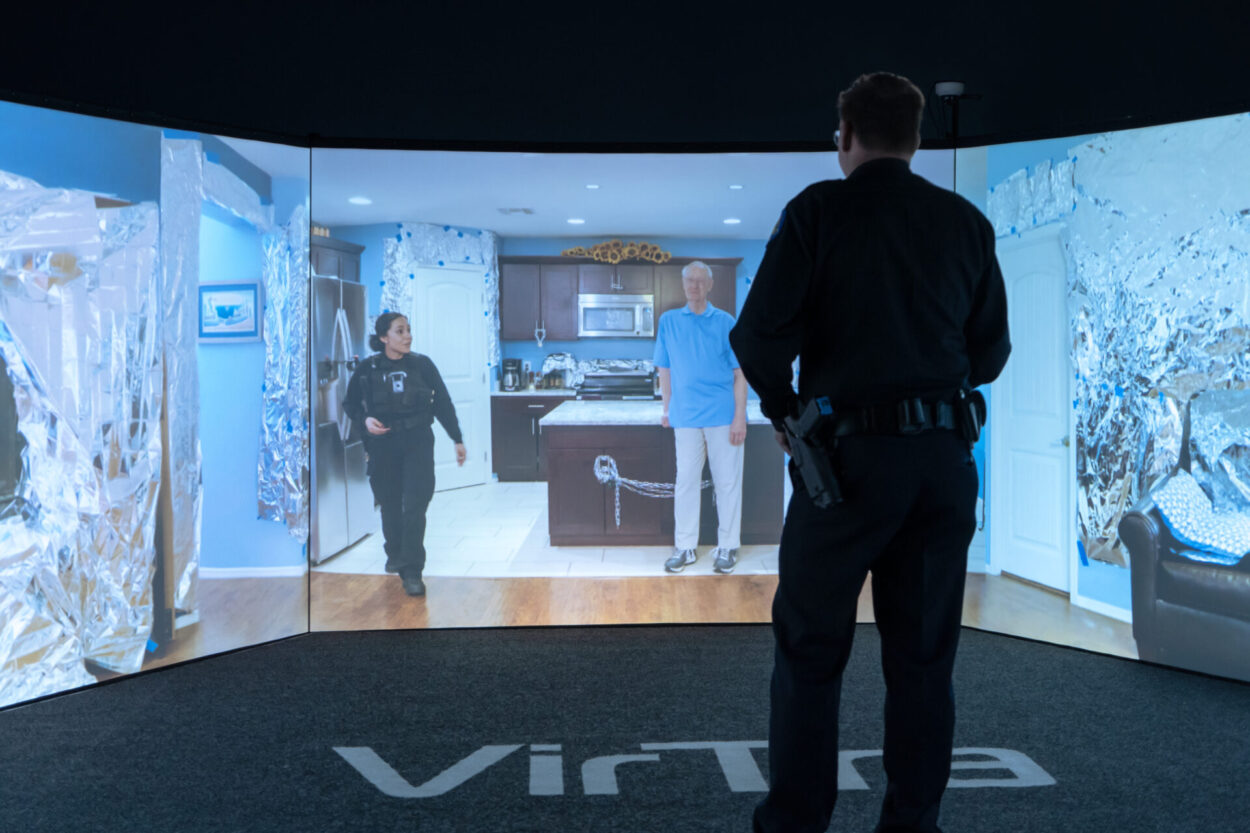
Emotionally disturbed person(s) – or EDP – is a broad and vague term often used to describe someone with a mental illness experiencing some sort of crisis. This includes erratic behavior that can be harmful to oneself or others.
The most recent data from the National Institute of Mental Health shows that more than one in five U.S. adults live with a mental illness. Some mental illnesses can be so mild they are nearly undetectable. Others are severe and debilitating with symptoms that limit activities in life.
Because of the high number of individuals that law enforcement officers interact with every day, they are bound to encounter someone with a mental illness. For this reason, VirTra’s law enforcement simulation training for mental illness and EDP encounters has many scenarios that allow police to practice these scenarios. It also will help them recognize when someone is experiencing a crisis or is suffering from a mental illness.
Misery Mountain
In this scenario, the responding officer in the simulator is dispatched to a hiking trail in the mountains. A man is sitting on the edge of the mountain, clearly upset. As the user will find out, the man is suffering from depression. The goal in this law enforcement simulation training for mental illness and EDP encounter is to calm him down and get him away from the side of the trail.
“Misery Mountain” is entirely dialogue-based and there are no force options available. The goal is to speak to the man in a way that calms him down and ensures he is being listened to.
Government Spy Games
Some situations may look unusual, but if nothing illegal is happening and there is no disturbance, it can be best to let the situation go. In “Government Spy Games,” the user is playing the role of an officer dispatched to a welfare check. You learn in advance in this law enforcement simulation training for mental illness and EDP encounter that the individual is mentally ill, and that their family has not heard from them in a while.
When you enter and see a man whose home is covered in aluminum foil, it is certainly a strange sight. The man is very paranoid, but upon questioning and seeing that he is alright, there is no reason to press further. This scenario is a dialogue-based one where no force is needed.
Office Anxiety
When interacting with a person in crisis, it is important to choose the right words and tone of voice. In the scenario “Office Anxiety,” the officer in the simulator must calm an office worker who is holding a pair of scissors. She has scars on her arms from previous cutting, and is causing her colleagues to worry for everyone’s safety. The woman can be de-escalated depending on what the user says, or they could become more irate, leading to an encounter with a higher level of force.
Training for Several Mental Illnesses
Due to how common interactions with mentally ill subjects are, VirTra created a 15-hour course to assist law enforcement clients. Mental illness comes in all forms, so VirTra’s “Mental Illness: A Practical Approach” curriculum covers 9 different types:
- Persons in crisis (crisis de-escalation)
- Depression
- Suicide & suicidal ideation
- Anxiety
- Trauma & PTSD
- Neurocognitive disorders (dementia, Alzheimer’s)
- Schizophrenia & mood disorders
- Traumatic brain injury (TBI)
- Substance use
Each module of this course includes slide presentations, class evaluation forms, tests, and the associated scenarios to run through. After engaging in classroom instruction, officers can practice their skills in the simulator.
In the end, our goal in providing these scenarios and courses is to keep officers and their communities safe. Training for mental illness encounters and being able to recognize them can save lives. If you would like to get started with VirTra’s training courses, contact a specialist.
References:
Recently Published
Join Our Newsletter









